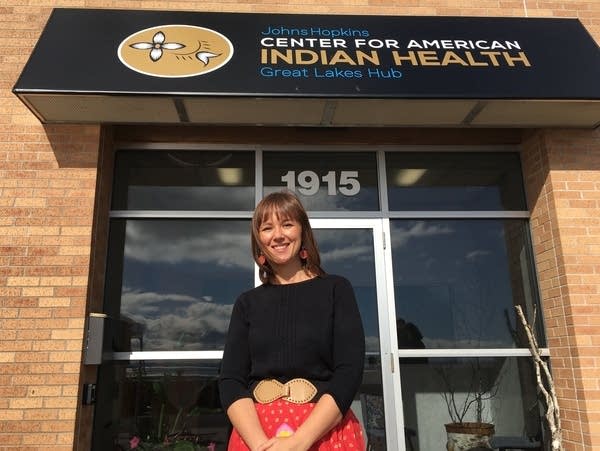Johns Hopkins opens American Indian health hub in Duluth

Go Deeper.
Create an account or log in to save stories.
Like this?
Thanks for liking this story! We have added it to a list of your favorite stories.
For Melissa Walls, her work to improve the health outcomes for Native American people is deeply personal.
“I have very few family members who don’t have Type 2 diabetes,” said Walls, from International Falls, Minn., and a member of the Bois Forte Band of Chippewa and Couchiching First Nation in Canada. “I see this in my family every single day. It’s a personal mission as well as professional.”
That mission influences her new position as head of the Johns Hopkins Center for American Indian Health Great Lakes Hub in Duluth, which celebrated its grand opening on Monday, Indigenous Peoples Day.
Walls will lead a staff of 13 researchers exploring preventive interventions for obesity, diabetes, substance use, mental disorders and other public health issues. Her team also includes 104 community-based tribal members who work as researchers in tribal communities throughout the Great Lakes region, collecting data and helping to interpret it.
Turn Up Your Support
MPR News helps you turn down the noise and build shared understanding. Turn up your support for this public resource and keep trusted journalism accessible to all.
“Tribal members and community members, who historically would have been thought of as the research, are now active partners in the research process,” said Walls.
For the past 11 years, Walls worked as a researcher at the University of Minnesota Medical School in Duluth. Her new position enables her to stay in Duluth, close to the tribal communities where her work is focused, but offers the backing of the Johns Hopkins School of Public Health, which has partnered with Native American communities in the southwest for over 30 years.
When colonists first came to North America, Native Americans were some of the healthiest people on the planet, said Allison Barlow, who directs the Johns Hopkins Center for Native American Health.
“There’s great documentation of their physical well-being, and also their social, emotional and mental well-being,” Barlow said.
Now, in large part because of centuries of historical trauma, Barlow said, Native Americans have some of the poorest health outcomes of any group in the country, in rates of diabetes, suicide and mental health problems and other issues.
Walls said she wants to work to end those health disparities. But at the same time, she wants to highlight the strength and resiliency of tribal communities.
“So, my goal as a researcher is to collect the kind of data that allows the Western world to see what our elders have already taught us, which is that simple truth that coming together as a community, healing as a community and then engaging with our culture is the pathway to better health,” she said.


